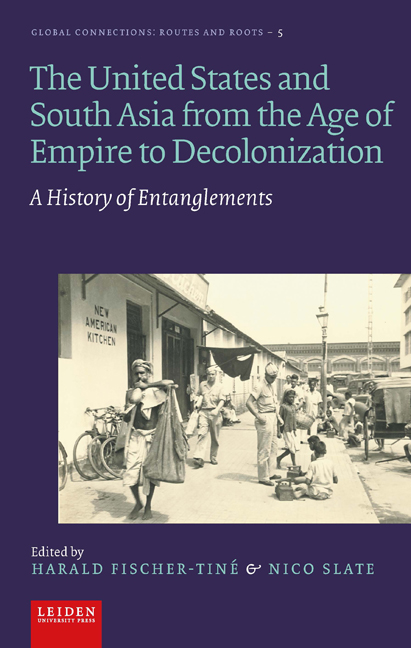 The United States and South Asia from the Age of Empire to Decolonization
The United States and South Asia from the Age of Empire to Decolonization Published online by Cambridge University Press: 07 January 2025
Abstract The establishment of India's first agricultural university at Rudrapur in Uttar Pradesh in 1960 represented a certain change in India's higher education project. Conceived in the shadow of growing United States-India collaboration in launching projects of agrarian modernization, the institution self-consciously embraced some of the core features of American land grant institutions. This was a deviation from the era after independence when plans for university education were couched in Gandhian frameworks. The new university came to instead own up the Indian state's new desire for agricultural development.
Keywords: postcolonial moment, Indo-US cooperation, Land Grant, agricultural university, Uttar Pradesh, development, Green Revolution
On November 17, 1960, Jawaharlal Nehru dedicated India's first agricultural university to the nation at Rudrapur, Nainital district, in what was then the state of Uttar Pradesh. The establishment of Uttar Pradesh Agricultural University was a part and parcel of India's postcolonial project of higher education that sought to cater to the needs of a widespread rural constituency. But as an institution the Uttar Pradesh Agricultural University (or UPAU) came to draw upon several lineages as it was impinged by changing priorities. Its planning and progress in the years after independence were contingent on early postcolonial imaginaries of progress for village India. But these motivations underwent a change in terms of narrowing of focus as nationalist ideals became encumbered by the desires for development in the 1960s. Along the way, UPAU abandoned some of the early founding ideals and embraced others. In particular, the stakeholders primed the institution to play a role in the execution of the “new strategy” in agriculture.”
There were countervailing forces at work that determined the course of UPAU's development from the time it was conceived through the years of its early growth. From 1955, an American team from the University of Illinois was stationed in the state to assist raising UPAU in the image of American land grant colleges. These initial American impulses rooted for maintaining the original spirit and core principles of land grant movement in the United States that stood for bolstering rural life, creating opportunities for rural populace, and taking action for building rural leadership.1 But these impulses had to come to terms with the regional state's priorities in India that sought to implant its own control, method and vision on to the emerging university.
To save this book to your Kindle, first ensure [email protected] is added to your Approved Personal Document E-mail List under your Personal Document Settings on the Manage Your Content and Devices page of your Amazon account. Then enter the ‘name’ part of your Kindle email address below. Find out more about saving to your Kindle.
Note you can select to save to either the @free.kindle.com or @kindle.com variations. ‘@free.kindle.com’ emails are free but can only be saved to your device when it is connected to wi-fi. ‘@kindle.com’ emails can be delivered even when you are not connected to wi-fi, but note that service fees apply.
Find out more about the Kindle Personal Document Service.
To save content items to your account, please confirm that you agree to abide by our usage policies. If this is the first time you use this feature, you will be asked to authorise Cambridge Core to connect with your account. Find out more about saving content to Dropbox.
To save content items to your account, please confirm that you agree to abide by our usage policies. If this is the first time you use this feature, you will be asked to authorise Cambridge Core to connect with your account. Find out more about saving content to Google Drive.